Collaborating to improve human services in Westmoreland County

A view of downtown Greensburg with the Westmoreland County Courthouse dome in the distance. Photo by Joshua Franzos.
Though Westmoreland is the 11th most populated county in the state and home to 355,000 people, its network of 160 nonprofit and government human services providers do not have a central human service department comparable to other large counties. This means there is no formal coordination on the delivery of services such as housing, food assistance and mental health and addiction treatment.
Thanks to recommendations from the “Improving Human Services in Westmoreland County” report published in 2021, that’s about to change.
The study, funded by The Community Foundation of Westmoreland County, United Way of Southwestern Pennsylvania and Westmoreland County Commissioners, tapped the expertise of dozens of human services providers and looked at how 12 other counties inside and outside of Pennsylvania organize their work to improve quality of life for residents.
The number one recommendation from the report: hire a director of human services to create and lead a county human services department that will bring providers together to coordinate service delivery, streamline data sharing and make it easier for providers to innovate and collaborate. A search for such a leader is now underway, with the goal of filling the position with in early 2022.
For funders such as McCrae Martino, who leads The Community Foundation of Westmoreland County, there is real value in having a human services department to serve as a convenor, helping to provide resources, establish goals, improve data sharing and, ultimately, create efficiencies so that any additional dollars brought in will better serve the county’s elderly, people with disabilities and other vulnerable populations.
“A coalition of providers is stronger than each provider on their own. A director of human services leading the department will be able to delve deeply into what’s happening in the community, meet with providers to assess needs and help develop solutions,” said Martino.
Study funders also hope that a human services department will spearhead shared case-management systems that will improve client service across provider agencies. They also hope the department will lead the development of data sharing systems that will cut red tape and make life easier for people served and providers.

L to R: McCrae Martino, executive director of The Community Foundation of Westmoreland County, a funder of the report; Alyssa Cholodofsky, Westmoreland region director of the United Way of Southwestern Pennsylvania and a co-funder of the report, speaking at a 2019 news conference; Project Consultant Jordan Pallitto of The Hill Group; and Project Consultant Prachi Jhala of The Hill Group.
“If a client goes to a housing agency, but also needs food assistance or other services, shared data systems can make referrals and eligibility paperwork faster and easier to complete,” said Martino. “That’s a long way off, but it’s just one of the ways that county dollars invested in human services could be spent in a more strategic way while not increasing costs to the county.”
Service coordination is especially critical in large rural communities, such as Westmoreland County, where the lack of transportation can make it harder for clients to get to appointments.
But according to project consultant Jordan Pallitto of The Hill Group, “Providers in Westmoreland County have done a tremendous job collaborating informally and have managed to innovate even without the critical infrastructure that many other counties have. Hats off to the providers, but just imagine what they could do with more structure and coordination.”
Study leaders convened dozens of meetings with a 14-member steering committee and met with more than a dozen subject matter experts throughout the course of the study. Recommendations from those meetings include the need for a unified vision for human services that will remain intact even if leaders leave; better training to help combat burnout and help human services workers make data-driven decisions; building on the service coordination that began during the COVID crisis; and making social equity a priority across agencies.
“COVID made providers think in innovative ways about how to leverage technology such as telehealth to overcome barriers to support clients and providers in a seamless way,” said Project Consultant Prachi Jhala of The Hill Group. “There is already a sentiment of really wanting to collaborate. Providers want to do things together to better serve their clients and improve people’s lives.”
Alyssa Cholodofsky, Westmoreland region director of the United Way of Southwestern Pennsylvania, agrees that actualizing the findings of the report will make it possible for human services providers to meet the growing needs of individuals and families.
“Westmoreland County is home to a strong and diverse group of human service providers eager to collaborate to improve services and meet increasing needs. Many people who are struggling during this time are facing more than one challenge and may need help with housing, food and job training opportunities,” she says. ”By integrating human services across county government and nonprofits, we will see improved cross-system collaboration, resulting in expanded resources and easier access to services for all citizens.

